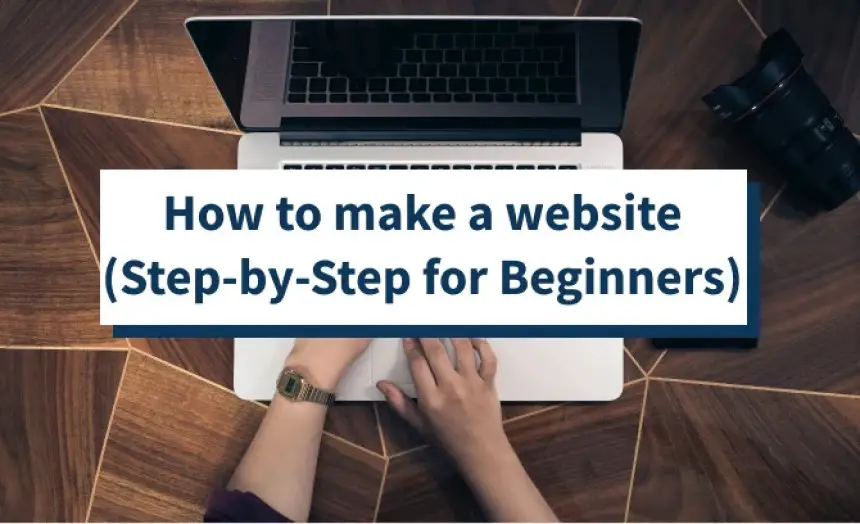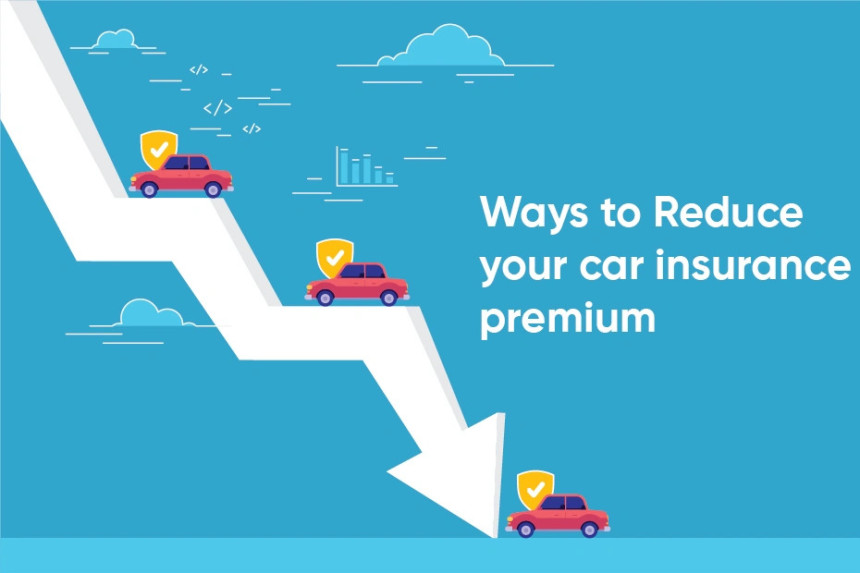
How to Make a Website: A Comprehensive Guide for Beginners
Utilizing this detailed instruction, you will be able to construct a website from the ground up. Our detailed instructions, combined with the hints and resources that we provide, will make it simple for you to develop your own website, regardless of your level of technical expertise.
Introduction
If you want to be successful in today's digital world, you need to have a presence online. This is true whether you want to be an entrepreneur, a blogger, or an enthusiast. The creation of a website could look intimidating, but you shouldn't be afraid of it! Utilizing this guide as your companion, you will be led step-by-step through the process of developing your website from the ground up. No matter how much experience you have, by the time you finish reading this article, you will be able to state with full assurance, "I know how to make a website!"
You may also like : "How to Sell on Amazon"
How to Make a Website: A Step-by-Step Guide
Let's get down to the meat and potatoes of putting together your website. The following is a step-by-step guide that will walk you through the process, beginning with selecting a domain name and ending with the launch of your website.
- Understanding the Basics of a Website: In the following paragraphs, we will discuss what a website is, how it functions, and the essential elements that go into creating a website. Having a firm foundation for your journey means having a solid understanding of these fundamentals.
- Choosing a Domain Name: The address of your website on the internet is referred to as its domain name. In this section, we will discuss some helpful hints for selecting a domain name that is not only memorable but also relevant and brandable.
- Selecting a Web Hosting Provider: Web hosting is a service that makes the files associated with a website accessible to users of that website. We'll walk you through the process of selecting a trustworthy hosting company that meets your requirements.
- Installing a Content Management System (CMS): A content management system enables you to effortlessly manage and change the content of your website. We will concentrate on WordPress because it is a CMS that is both user-friendly and adaptable.
- Designing Your Website: Find out how to choose themes, layouts, and colors for your website and how to tweak them so that they fit your brand or style.
- Adding Content: Pages and Posts: It is vital to begin by developing essential pages such as Home, About, and Contact. In addition to that, we'll go over how to write and format interesting blog posts.
- Incorporating Multimedia: Add some pictures, movies, and other forms of media to your website so that it seems more engaging to the eye. We will talk about the most effective methods for integrating media.
- Enhancing Functionality with Plugins: Plugins can be used to extend the functionality of a website by adding features such as contact forms, social network integration, and optimization for search engines. In order to improve the functionality of your website, we will suggest certain crucial plugins.
- Optimizing for SEO: Learn how to make your website more friendly to search engines in order to increase the amount of organic traffic it receives. On-page optimization, effective keyword placement, and meta description use will be discussed.
- Ensuring Responsiveness and Mobile-Friendliness: It is absolutely necessary to have a design that is responsive because the vast majority of internet consumers browse on their mobile devices. We will walk you through the steps necessary to ensure that your website appears beautifully on all screen sizes.
- Testing Your Website: It is imperative to conduct exhaustive testing before to launch. We will walk you through the process of functionality testing, as well as testing for compatibility and speed.
- Launching Your Website: It's time to launch your website into the world wide web! We will provide a checklist to guarantee that the launch procedure goes off without a hitch.
- Tracking and Analytics: Learn how to set up Google Analytics to watch the behavior of website visitors and obtain valuable information about the performance of your website.
- Maintaining and Updating Your Website: Maintaining and updating your website on a regular basis is required. In this session, we will talk about ways to maintain the freshness and safety of your information.
- Troubleshooting Common Issues: Have you run into any difficulties? Don't worry, we'll help you troubleshoot common problems that may arise while you're in the process of developing your website.
- Security Measures: It is of the utmost importance to guard your website against potential cyberattacks. We will go over the most important security measures and plugins that you can use to protect your website.
- Scaling Up: E-commerce and More: We will give you with a road map for scaling up your website in the event that you wish to grow into e-commerce or other sophisticated services.
- Building an Online Community: Engage with your target demographic by integrating your website with social media, comment sections, and discussion forums. In this lesson, we will discuss the advantages of cultivating a community around your website.
- Monetization Strategies: Investigate a variety of methods for making money off of your website, such as selling things or services, placing advertisements, or participating in affiliate marketing.
- Staying Updated with Web Trends: The terrain of the digital world is always changing. We will make recommendations for resources that you may use to assist you keep up with the most recent developments in web design and development trends.
- Ethical Considerations: Gain an understanding of the ethical duties that website owners are responsible for, including the accessibility of their sites, the security of user data, and ownership of their material.
- Showcasing Your Portfolio: A website portfolio is an effective tool for creative professionals such as artists, photographers, and freelancers. Acquire the knowledge necessary to construct an appealing online portfolio.
- Getting Support and Seeking Help: If you ever find yourself in a bind, there is a massive online community that is standing by to offer you. We will discuss various resources that can be utilized to acquire support and discover answers to problems.
- Personal Branding and Online Identity: Your company's online presence serves as an extension of both its brand and its identity. Learn how to effectively link your website with your own brand by perusing this information.
- Celebrate Your Success!: I'd like to congratulate you on the creation of your website. In conclusion, we'll go over several strategies for advertising your website and recognizing your accomplishments.
You may also like : "How to Invest in Stocks"
Conclusion
The creation of a website may appear to be a challenging task, but if one has access to the appropriate direction and resources, it can be accomplished. This tutorial has armed you with the knowledge necessary to establish a website with complete self-sufficiency, whether you plan on beginning a blog, exhibiting your work, or opening an online business. Have fun when you bring your website to life; after all, it is a reflection of your imagination and the things that you are passionate about.
FAQs
Can I create a website without any technical skills?
- Absolutely! Many website builders and content management systems, like WordPress, offer user-friendly interfaces that require no coding knowledge.
How much does it cost to make a website?
- The cost varies based on factors like domain registration, hosting, themes, and plugins. You can start with a minimal budget and expand as your website grows.
Do I need to learn coding to have a professional website?
- While coding can enhance your capabilities, it's not a necessity. CMS platforms and website builders allow you to create polished websites without extensive coding skills.
What is website hosting, and why do I need it?
- Web hosting is like renting space on the internet to store your website's files. It's crucial for making your site accessible to users 24/7.
Can I change my website's design after launching?
- Absolutely. You can change themes, colors, layouts, and even add new features without affecting your existing content.
How do I attract visitors to my website?
- Implementing SEO strategies, sharing on social media, and creating quality content will attract organic traffic to your website.
You may also like : "How to Make Money Online"
Tags
#WebsiteCreation #WebsiteBuilding #BeginnersGuide #CreateYourOwnWebsite #WebDevelopment #WebsiteDesign #OnlinePresence #DomainName #WebHosting #ContentManagementSystem #WordPress #WebsiteDesignTips #MultimediaIntegration #WebsiteFunctionality #SEOOptimization #MobileFriendlyDesign #WebsiteTesting #WebsiteLaunch #GoogleAnalytics #WebsiteMaintenance #WebsiteSecurity #ECommerceWebsite #OnlineCommunityBuilding #MonetizationStrategies #WebTrends #EthicalResponsibilities #OnlinePortfolio #SupportandHelp #PersonalBranding #WebsiteSuccess





